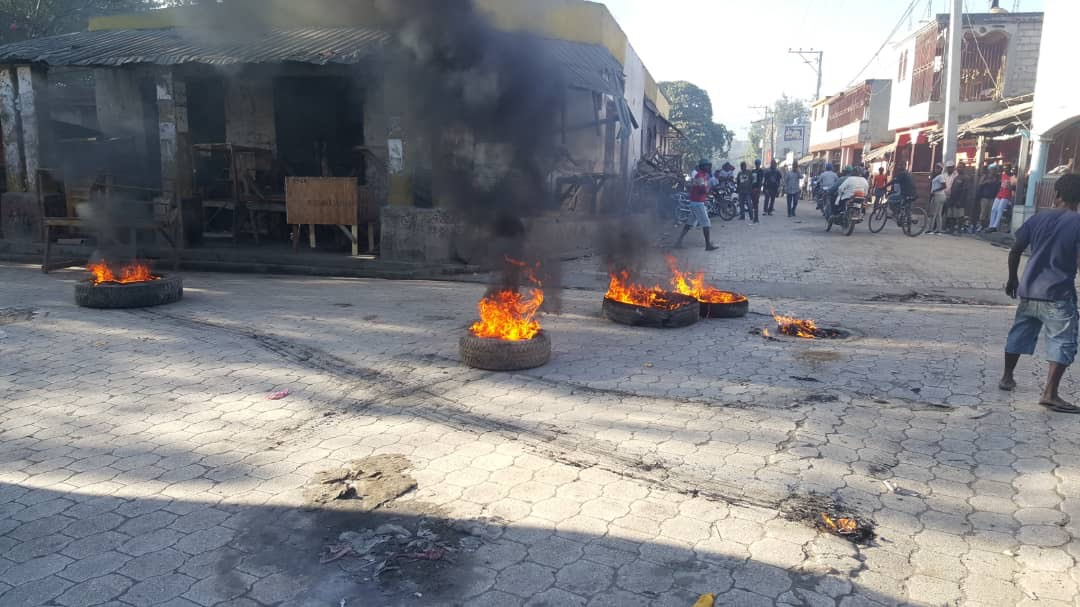- 14 3402-5578
- Rua Hygino Muzy Filho, 737, MARÍLIA - SP
- contato@latinoobservatory.org
 Voice of America
Voice of America
The humanitarian and security crisis affecting Haiti is serious, especially in the city of Cap-Haïtien, which is currently home to the country's only airport open to international commercial flights.
The city faces extreme challenges, composed by gang violence, mass internal displacements, and a collapsing infrastructure. According to the Miami Herald, recently, a deportation flight organized by the United States took 70 Haitians back to the country, triggering intense criticism from human rights defenders and local authorities, who argue that the situation in Haiti is unable to support the return of migrants in such precarious conditions.
Gang violence in Haiti is a central element of the crisis. In Port-au-Prince, armed attacks have resulted in the closure of the main airport and the almost complete isolation of the capital, where only 20% of the areas are accessible due to gang dominance. This scenario has led the UN to warn of a growing humanitarian catastrophe, with more than 700,000 internally displaced people and alarming levels of sexual violence used as a weapon of control. At the same time, the national infrastructure suffers from roads blocked by gangs and damaged by landslides, exacerbating the isolation of several regions, according to the publication.
In Cap-Haïtien, the arrival of U.S. deportees and migrants expelled from the Dominican Republic further burdens a town already on the verge of collapse. Mayor Yvrose Pierre pointed out that the city does not have the resources to meet the basic needs of these migrants, who often face a lack of shelter, food and access to medical care. She also warned of the need for financial assistance and declared that the central government should expand the state of emergency beyond Port-au-Prince, considering the increased pressure on Cap-Haïtien.
Meanwhile, the U.S. deportation policy under the Biden administration has generated controversy. Although the U.S. government claims to monitor the situation in Haiti and follow immigration laws, critics argue that these actions are insensitive to the multifaceted crisis facing the country. Organizations such as the UN and the Haitian Bridge Alliance classify the deportations as human rights violations, given the extreme level of insecurity and Haiti's inability to absorb these individuals amid the chaos.
The Dominican Republic also plays a significant role in the migration crisis, with the expulsion of nearly 50,000 Haitians in just two months. These migrants, often in vulnerable and undocumented conditions, arrive in Haiti in search of aid that the country is unable to provide, exacerbating instability in already overburdened regions.
The article highlights the lack of sufficient
international support to mitigate the crisis in Haiti. UN agencies face funding
shortfalls, while aid workers struggle to access affected areas. Experts and
local leaders call for an immediate halt to deportations, arguing that these
actions only deepen the humanitarian and human rights catastrophe. The
situation in Cap-Haïtien, presented as a microcosm of the national crisis,
reflects the urgency of a coordinated and robust intervention to prevent the
total collapse of the country.











